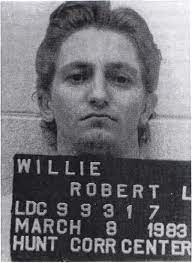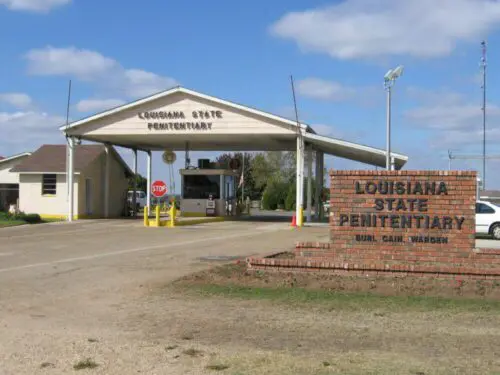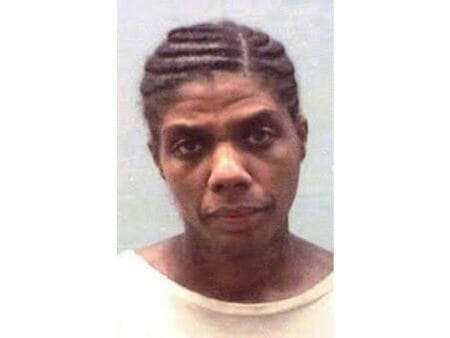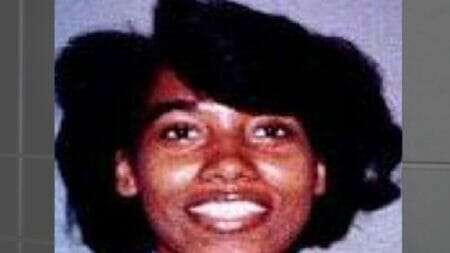
Ernest Knighton was executed by the State of Louisiana for a murder committed during a robbery. According to court documents Ernest Knighton would cause the death of a gas station manager during a robbery. Ernest Knighton would be arrested, convicted and sentenced to death. Ernest Knighton would be executed by way of the electric chair on October 30, 1984
Ernest Knighton More News
Convicted killers were executed within seven minutes of each other in Texas and Louisiana early today, one reciting the 23rd Psalm on his way to the electric chair for killing a gas station owner and the other saying goodbye to his death row friends.
‘I’m going home,’ Earnest Knighton, 38, said moments before he was electrocuted at 12:17 a.m. CST in ‘Gruesome Gertie,’ the inmates’ name for the electric chair at the state prison in Angola, La.
Seven minutes later and 235 miles away in Huntsville, Texas, Thomas Andy Barefoot, 39, an oilfield roughneck who said God had promised to spare him, was pronounced dead from a lethal injection.
‘I’m sorry for everything I’ve done to anybody,’ Barefoot said.
After being injected Barefoot turned to a reporter who witnessed the execution and asked her to say farewell to his friends on death row.
‘… tell all my friends hello,’ he said. ‘You know who they are. Charlie Bass, David Powell …’
At that point Barefoot broke off with a choke and a gasp and he let out three short, sharp, soft cries and died.
Knighton and Barefoot became the 27th and 28th people executed since the Supreme Court lifted the ban on the death penalty eight years ago. Attorneys for a woman on North Carolina’s death row filed appeals Monday to prevent her from becoming the first woman executed in 22 years on Friday.
The Supreme Court and other courts rejected last-minute appeals Monday from both Barefoot and Knighton and the governors of Louisiana and Texas refused to intervene.
Knighton’s lawyers claimed he was drug-crazed when he killed Ralph Shell of Bossier City, La., during a March 17, 1981, robbery that netted $300.
Barefoot, convicted in the 1978 shooting death of Carl LeVin, a Harker Heights, Texas, police officer, had received four stays of execution. His attorneys argued psychiatric testimony used in the punishment phase was obtained illegally and important information was suppressed.
As he was led down the long corridor to the death chamber, Knighton recited the 23rd Psalm, raising his voice as he crossed the threshold, saying, ‘Surely I will dwell in the house of the Lord forever.’
In a written statement, he apologized for his crime but spoke out against his punishment, saying, ‘You don’t teach respect for life by killing. I urge you not to kill anyone else.’
Barefoot asked for forgiveness and said he held no grudges.
‘I’ve been praying all day for Carl LeVin’s wife to drive the bitterness from her heart because that bitterness in her heart will send her to hell,’ Barefoot said as he was strapped to a table prior to injection
‘I want everybody to know I hold nothing against them. I forgive them all. I hope everybody I’ve done anything wrong to will forgive me.’
Small groups of protesters gathered outside both prisons.
A crowd of mostly students from nearby Sam Houston State University cheered and waved placards ridiculing Barefoot outside the prison in Huntsville. One woman carried a 4-foot-long mock syringe.
About 30 people protesting the death penalty met outside Angola State Penitentiary. The were met by a handful of demonstrators in favor of the death penalty. Both stood quietly facing each other across the road into the prison.
In North Carolina, attorneys for Margie Velma Barfield filed an emergency appeal with the Supreme Court to stop her Friday execution.
The 52-year-old grandmother admitted poisoning her mother and three others, but has said she was addicted to drugs and did not know what she was doing.
https://www.upi.com/Archives/1984/10/30/Killers-executed-in-Louisiana-and-Texas/5829467960400/







